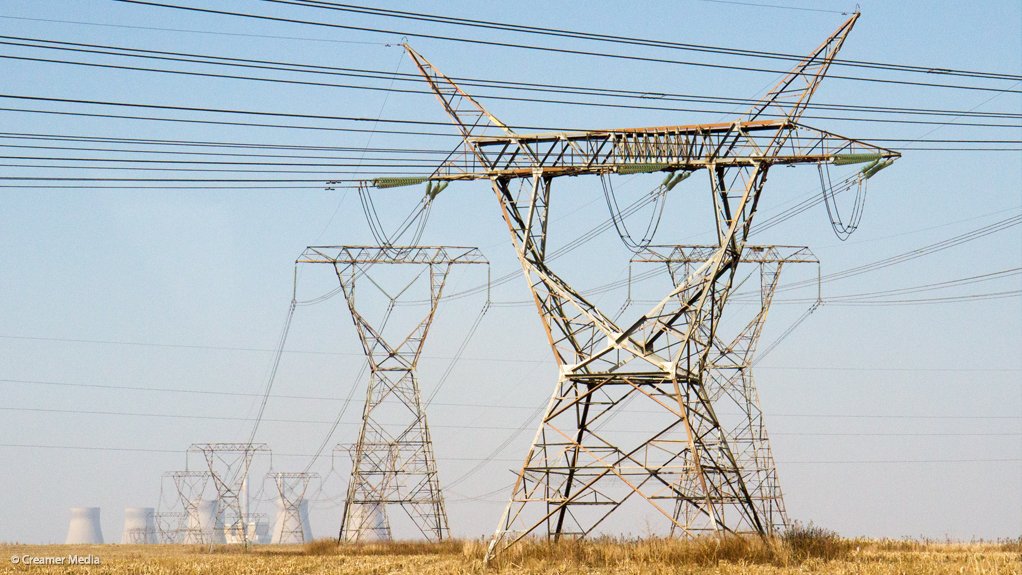Many of the submissions the Department of Mineral Resources and Energy (DMRE) has received from the first round of public engagements about the draft Integrated Resource Plan 2023 (IRP 2023) in January have revealed new sources of data to consider in the plan’s modelling, DMRE energy planning specialist Sonwabo Damba said on January 31.
He added that the modelling for the draft IRP 2023 did not take into account the implications of the 10% curtailment on the availability of grid connectivity in the Eastern Cape, the Northern Cape and the Western Cape.
Further, none of the 3 000 MW of gas-to-power projects assumed in the initial modelling had reached financial close.
This is why the DMRE would rerun the modelling it used for the draft IRP, he said during a public engagement by the DMRE.
Damba provided insight into where the department sources its data, and some of the assumptions that inform the modelling of the data.
Importantly, the department considers unserved energy as a significant cost factor because peaking stations will have to run longer to make up for unmet demand, which is why its modelling had indicated that an energy system dominated by solar, wind and battery energy storage would be the highest cost system for the country to build, he said.
However, University of Cape Town senior scholar and National Planning Commission energy expert Professor Anton Eberhard pointed out that, when gas is included with a renewables- and battery-dominated energy mix, the outcome is a least-cost scenario. This scenario was used as the reference case by the department in the draft IRP modelling.
Additionally, State-owned Eskom had done technical studies on gas peaking power plants, and determined that about 3 000 MW of gas would help it to balance the grid. It applied for a determination from the DMRE and received it, as well as concurrence from the National Energy Regulator of South Africa, Damba noted in his presentation.
Further, he said the DMRE’s modelling had indicated that a clean coal-dominated energy mix would lead to rapid elimination of loadshedding. The DMRE modelling for the draft IRP 2023 in one scenario determined that about 5 500 MW of clean coal systems could be built by 2040, he added.
A challenge, Green Environmental Engineering MD Theron Moonsamy argued, was that these carbon capture systems were not used in South Africa, and some known systems did not remove a majority of carbon dioxide on the first pass-through.
Meanwhile, the rerun of the modelling could yield more capacity to connect renewable energy projects, as the current modelling indicated that no grid capacity was available in the Northern Cape and only 2 000 MW was available over the Eastern and Western Cape provinces, Damba noted.
A rerun of the modelling using the curtailment assumptions should add about 3 200 MW of grid capacity to which renewable projects can be connected, he said.
In terms of private power projects, the department's modelling has identified a pipeline of 10 400 MW, with about 5 300 MW of these being what it considers firm projects, as they have a location, a commercial operation date, or have reached financial close. About 2 824 MW of these projects have grid capacity reserved for them.
About 60% of all these business-led projects are solar power projects, he said.
Further, about 60% of all the new generation builds to 2030 that the department has modelled are renewable energy projects.
Additionally, the DMRE's modelling for its Horizon 2 from 2031 to 2050 has assumed that the country would have 4 000 MW of nuclear capacity by 2040, with pressurised water reactor (PWR) plants being quicker to build than small modular reactors (SMR), owing to licensing delays.
However, Damba said the DMRE's modelling indicates that construction on nuclear plants could start by 2034 for PWR plants and by 2036 for SMR plants, and modelling of such a scenario has suggested that 100 MW of SMR capacity can be added each year.
The costs for nuclear new builds data were derived from a request for information that the DMRE issued, which was then used in the modelling.
Electricity Minister Kgosientsho Ramokgopa has issued a determination in the Government Gazette for the country to procure 2 500 MW of new nuclear power, DMRE deputy director-general Ntokozo Ngcwabe confirmed.
EMAIL THIS ARTICLE SAVE THIS ARTICLE ARTICLE ENQUIRY
To subscribe email subscriptions@creamermedia.co.za or click here
To advertise email advertising@creamermedia.co.za or click here











